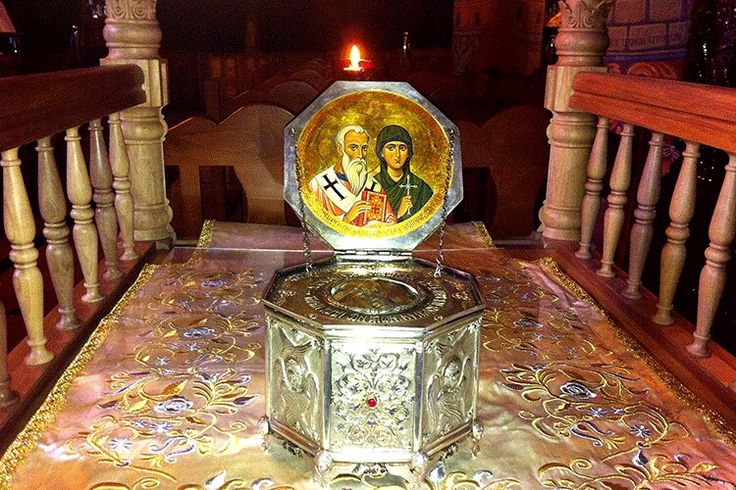Cyprian: Christian Myth and Magic
 Today is the feast of Saint Cyprian of Antioch. Between family and services today I dont have timr for a major post today. Yesterday though Jake Stratton Kent correctly pointed out yesterday that St Cyprian“was *invented* by a Christian polemicist in order to mount an attack on Neoplatonism and Theurgy. The story developed a life – and mythic vitality – of its own.” and that “considering him (Cyprian) as an anti-magical polemical construct with a long history of being ‘appropriated’ by magicians does – or should – have some bearing on the discussion.”
Today is the feast of Saint Cyprian of Antioch. Between family and services today I dont have timr for a major post today. Yesterday though Jake Stratton Kent correctly pointed out yesterday that St Cyprian“was *invented* by a Christian polemicist in order to mount an attack on Neoplatonism and Theurgy. The story developed a life – and mythic vitality – of its own.” and that “considering him (Cyprian) as an anti-magical polemical construct with a long history of being ‘appropriated’ by magicians does – or should – have some bearing on the discussion.”
It totally does. It strikes right at the heart of what Spirits are and how the develop and change, and indeed how their nature can be changed by the means of approach.
I should add that the idea that Saints, or even most of the stories in the Gospels, are more myth than reality is not new. Origen wrote in the third century:
“Very many mistakes have been made because the right method of examining the holy texts has not been discovered by the greater number of readers because it is their habit to follow the bare letter.
Scripture interweaves the imaginary with the historical, sometimes introducing what is utterly impossible. sometimes what is possible but never occurred… The World has done the same with the Gospels and the writings of the Apostles; for not even they are purely historical, incidents which never occurred being interwoven in the “corporeal” sense…
And who is so silly to imagine that God, like a husband-man, planted a garden un Eden eastward, and put in it a tree of life, which could be seen and felt… And God is also said to walk in the Garden in the evening, and Adam to hide himself under a tree. I do suppose that any one will doubt that these passages, by means of seeming history, though the incidents never occurred, figuratively reveal certain mysteries.”
Any magician who is hung up on whether Cyprian existed in reality or not is missing the point, and fails to understand how ideas become enfleshed in the spirit. But this does not mean that “anything goes”. There are still core ideas and, as I have been saying in the last several posts, the role of Christ in Cyprian is integral to the root of the story. NO WHERE in all the spellbooks, or folk traditions is this rejected. Is it built upon? Yes absolutely. But Cyprian IS a Christian Saint, even if, like Saint Christopher and countless others, he and Justina have been removed from the books of the RCC.
